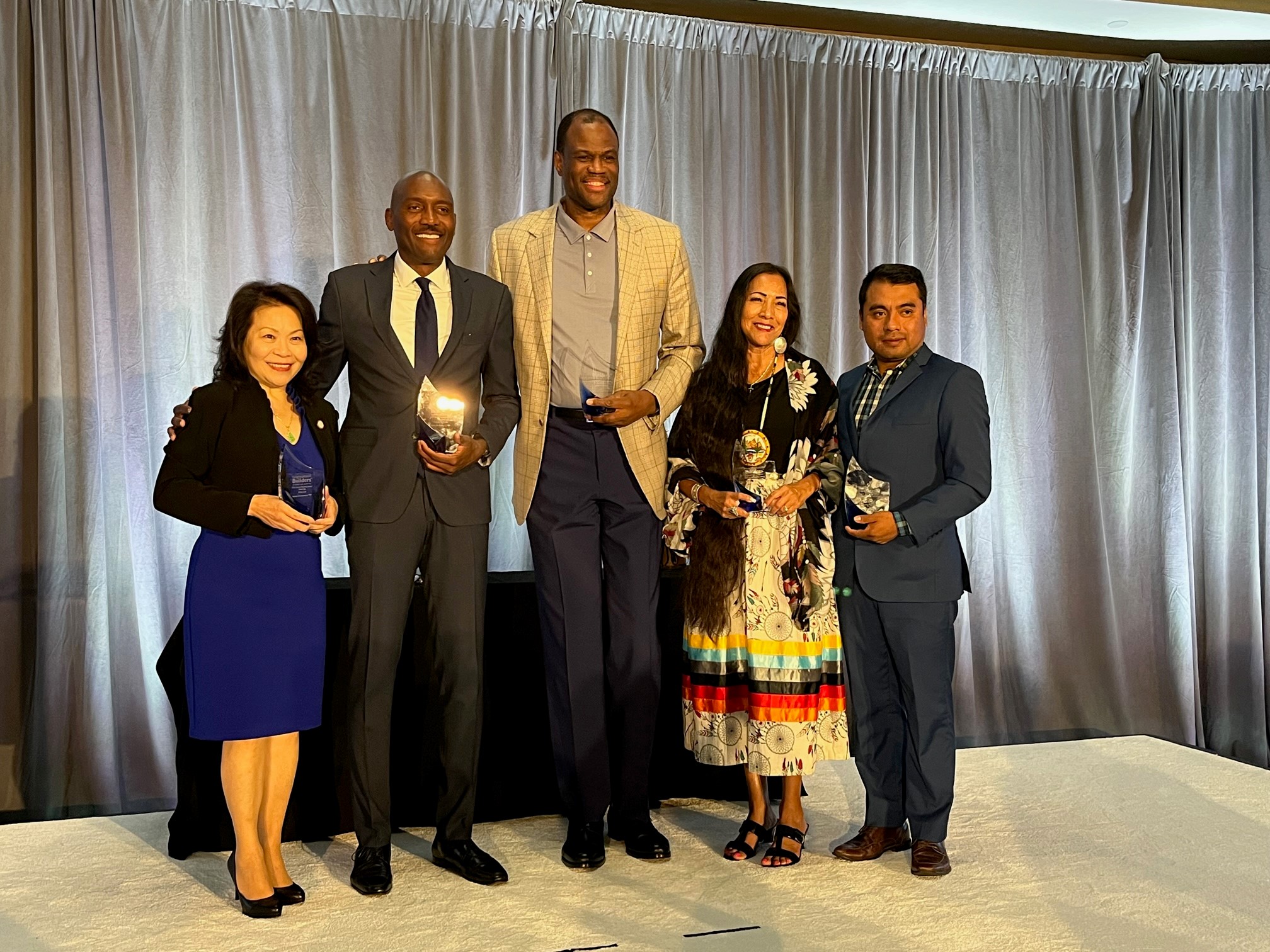
- Details
- By Elyse Wild
Titla is an enrolled member of the San Carlos Apache Tribe and was selected for her extraordinary contributions to breaking racial barriers and creating opportunities for people of color. She has served as UNITY’s executive director since 2013 and previously as a Trustee. She has significantly increased participation in UNITY’s programming across the country as executive director. She has enhanced the UNITY network by adding almost 200 Youth Councils and engaged 2,500 youth attendees at their National conference in 2020, a 92 percent increase in attendees since 2013.
Titla also re-established the Earth Ambassadors Program and created the UNITY 25 Under 25 Leaders Award, a national recognition program honoring Native American and Alaskan Native youth leaders who exemplify UNITY’s core mission.
“I’m grateful to Bank of America for investing in the future of our Tribal communities and am flattered to be named a Racial Equality Award recipient along with these other amazing nonprofit leaders,” Titla said in a press release. “My mentor, the late J.R. Cook, founded UNITY and led with passion and purpose. I am honored to be able to direct this grant to UNITY so that we may continue to impact the lives of Native youth across the country.”
As a grant recipient, UNITY will participate in Bank of America’s year-long Neighborhood Builders Leadership Program, which provides strategic growth and development training to position organizations for long-term success. The grant will be utilized to help provide support to UNITY’s current youth programs, including the National UNITY Council, the largest and oldest network of youth councils with 325 in 36 states; UNITY 25 Under 25 Youth Leaders; the Earth Ambassadors program and UNITY’s Healing Circle Initiative, which supports Native youth as they adjust and navigate the impacts from the pandemic.
“Mary Kim is a remarkable and effective leader elevating and empowering thousands of Indian and Native Alaskan Youth here in Arizona and around the country,” Benito Almanza, Bank of America Arizona president, said in a statement. “Through its programming and educational opportunities, UNITY is helping create a pipeline of realized potential among the unified, self-reliant youth who are motivated and invested in tribal leadership and community. This recognition honors Mary Kim’s expanding legacy of breaking racial barriers by helping expand UNITY’s impact on future generations.”
More Stories Like This
Native News Weekly (August 25, 2024): D.C. BriefsUS Presidents in Their Own Words Concerning American Indians
NDAA passes House; Lumbee Fairness Act Advances
NFL, Vikings to Host Native All-American Game, Youth Flag Clinic
Senate Committee on Indian Affairs Passes 12 Bills to Strengthen Tribal Communities
Help us defend tribal sovereignty.
At Native News Online, our mission is rooted in telling the stories that strengthen sovereignty and uplift Indigenous voices — not just at year’s end, but every single day.
Because of your generosity last year, we were able to keep our reporters on the ground in tribal communities, at national gatherings and in the halls of Congress — covering the issues that matter most to Indian Country: sovereignty, culture, education, health and economic opportunity.
That support sustained us through a tough year in 2025. Now, as we look to the year ahead, we need your help right now to ensure warrior journalism remains strong — reporting that defends tribal sovereignty, amplifies Native truth, and holds power accountable.
 The stakes couldn't be higher. Your support keeps Native voices heard, Native stories told and Native sovereignty defended.
The stakes couldn't be higher. Your support keeps Native voices heard, Native stories told and Native sovereignty defended.
Stand with Warrior Journalism today.
Levi Rickert (Potawatomi), Editor & Publisher


